IAACA

International Association of Anti-Corruption Authorities (IAACA) participates on the Exchange of information related to the legislation, investigation, prevention and education in the area of combatting corruption via its website al around the world.
The International Association of Anti-Corruption Authorities (IAACA) is a non-governmental organization established as a result of a special meeting held at the UN Office in Vienna in 2006.
Its purpose is mutual exchange of information related to the legislation, investigation, prevention and education in the area of combatting corruption between its members via its website. Matters of accepting new IAACA members, organization of conferences , conditions for admittance etc. are decided by the IAACA Executive Committee. The Prosecutor General’s Office attends IAACA meetings, however, it is not a member.
EPAC
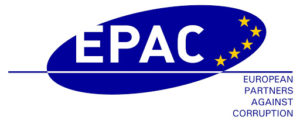
European Partners Against Corruption (EPAC) is an informal network of national supervisory Police authorities and anti-corruption authorities of the Members States of the EU and Council of Europe (the Czech Republic is represented by the Department for Investigation of Corruption and Financial Crime of the Criminal Police and Investigations Service). Members of this network, among which is also OLAF have been mutually meeting since year 2001. In 2008 the EU Council has adopted the Council Decision 2008/852/JHA of 24 October 2008 on a contact-point network against corruption, which is a more formalized network composed of 48 anti-corruption authorities of EI Member States and is founded on the EPAC structures.
EPAC Tasks and objectives:
- establishing, maintaining and development of contacts between specialized authorities,
- promotion of independence, impartiality and legitimacy, as well as responsibility, transparency and availability of all systems constituted for independent supervision over activities of the Police and anti-corruption activities,
- support of development and promotion of common work standards and best practices for supervision Police authorities and anti-corruption authorities,
- provides a platform for exchange of information and expert knowledge on the development of Police supervision mechanisms and on anti-corruption cases,
- provides support to other countries and organizations that wish to establish supervision mechanisms and create anti-corruption authorities,
- cooperation with other organizations, authorities, networks and associated parties in compliance with the above stated objectives.
OECD
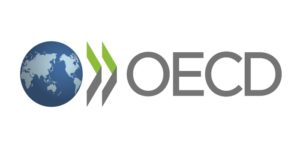
Organization for Economic Co-operation and Development (OECD) is an international organization advocating free market principles in many areas of economic life, which searches for the most suitable solutions of common problems of Member States in the form of mutual exchange of opinions, experience and best practices.
Organization for Economic Co-operation and Development (OECD) was formed in 1961 as the successor of the Organization for European Economic Co-operation (OEEC) formed with the aim to monitor and direct economic rebuilding of Europe after World War II. OECD is currently composed of 38 of the most economically developed countries in the world. The Czech Republic has become a member as of 21 December 1995. At the moment of its accession it declared adoption of a vast majority of instruments and obligations arising out of the OECD membership.
The main role of OECD is its endeavor to promote principles of free market in many areas of economic life. OECD also serves as a forum for searching for the most suitable solutions of common problems of Member States in the form of exchange of opinions, experience and best practices and solutions. The analytic activities of OECD are conducted by the Secretariat, which utilizes data provided by the Member States Governments for monitoring current trends and predicting further economic development. The areas, in which OECD is active are ranging from economic, fiscal and social policy, labor market, agriculture and the environment, to trade, investments or science.
OECD objectives:
- development of Member States economies,
- achieving a sustainable long-term economic growth,
- coordination of economic, social and political cooperation of Member States,
- improvement of employment rate and standards of living in individual Member States, while maintaining financial balance,
- mission of OECD is also the expansion of world trade on a multi-lateral non-discriminative basis in compliance with the adopted international obligations, and as such to promote liberalization of international trade,
- mediation of new investments.
OECD has undertaken, among other things, to coordinate the international fight against corruption and for these purposes was adopted the Convention on Combating Bribery of Foreign Public Officials in International Business Transactions, which came into force as of 31 March, 2000.
In order to achieve its goals, OECD utilizes a number of tools, e.g. recommendations, directives, codes, declarations, conventions, which in the majority of cases are of recommendatory nature.
The highest OECD authority is the Council composed of ambassadors of the Member States, which usually meets twice a month. Its task is to deal with strategic and operational issues related to the management of the organization. Once a year OECD organizes a meeting of the OECD Council at the level of Ministers, where they debate crucial conceptual questions and set a long term direction of the organization. Material questions are being discussed by diplomats and public officials of Member States in committees and work groups. There are two agencies affiliated with OECD with special status – the Nuclear Energy Agency (NEA) and the International Energy Agency (IEA).
The main agents of cooperation of the Czech Republic with OECD are the Ministry of Foreign Affairs, the Ministry of Trade and Industry, whose representatives attend several committees and work groups. Public Prosecutors of the Prosecutor General’s Office, Department of Serious Economic and Organized Crime, participate on the activities of OECD expert bodies, namely the OECD Working Group on Bribery of Foreign Public Officials in International Business Transactions and OECD Task Force on Tax Crimes and Other Crimes), meetings of which they regularly attend.
[1] http://www.mpo.cz/dokument5915.html
Carin
Carin is an informal network of representatives with the aim to mutually improve their knowledge and share experience related to the methodology and techniques in the area of cross-border cooperation in identification, seizure and confiscation of proceeds of crime.

In October 2002 a conference was held in Dublin, which was organized in cooperation with the Irish Criminal Assets Bureau a Europol. The conference was attended by representatives of all EU Member States, some candidate countries, Europol and Eurojust. The participants were representatives of authorities involved in criminal proceedings of the respective Member States. This conference has yielded, among other things, a recommendation to establish an informal network of contacts and a co-working group in the area of proceeds from crime.
Based on this recommendation, representatives of Belgium and the Netherlands held in cooperation with Eurojust a meeting of four Member States, each of which had already established a unit dealing with proceeds from crime. The meeting was attended by representatives of Belgium, the Netherlands, Ireland and the Great Britain. Preliminary meeting was also attended by Austria and Eurojust. The participants have unanimously agreed that law enforcement within the EU could benefit from the creation of an informal network of authorities dealing with proceeds from crime. The meeting was held in 2003 in the attendance of Belgium, the Netherlands, Ireland, the Great Britain and Eurojust, whereas Europol assumed the role of Secretariat. On this meeting the participants have agreed on the name of this group – Camden Assets Recovery Inter-Agency Network (CARIN).
The CARIN network was then officially established at a Hague Congress held on 22 and 23 September, 2004. It was attended by representatives of all 25 EU Member States, Europol, Eurojust, several candidate countries, as well as by other organizations. The objective of this Congress was to establish an informal network of representatives with the aim to mutually improve the practice, methodology and techniques in the area of cross-border cooperation in the identification, seizure and confiscation of proceeds from crime. The main objective the creators of this network had in mind was improvement if international cooperation between authorities involved in criminal proceedings in the area of searching for proceeds from crime and seizure and confiscation thereof. Based on the discussions held at the founding Congress, the following recommendations were adopted:
- membership in the CARIN network is to be open to authorities involved in criminal proceedings,
- each member state is entitled to appoint one member of a Police body and one member of a judicial body as its representatives,
- each member state and observer must comply with the following conditions:
The members should clearly designate their national contact points. The number of contact points should be as necessary for effective functioning of the network. Therefore it is recommended to appoint no more than two contact points. These should be from a central authority that is engaged in the process of monitoring and seizure of assets. If it is not possible, this contact point must have a direct access to experts in this area.
The members will provide overviews and summaries of their legislation related to seizure of assets to other member states and observers and a summary of these materials will be published on the CARIN website.
The members will strive to fulfill the objectives stated in the “Declaration of Intentions”.
Every year there is a plenary meeting of members and observers held by the appointed presiding state. CARIN is directed by the Steerring Committee, which is assisted by the Europol Secretariat. Since 2005, the Czech Republic is a member of the Steering Committee.
The Czech Republic presided over the CARIN Network in 2010. Within this presidency the Ministry of the Interior of the Czech Republic along with the Prosecutor General’s Office organized a conference of the CARIN network in Prague, which took place on 15 – 17 September 2010. The Conference was attended not only by representatives of EU Member States, but also by representatives of Albania, Australia, Croatia, Gibraltar, Guernsey, Isle of Man, Moldova, Jersey, South Africa, Canada, Lichtenstein, Macedonia, Monaco, Norway, Russia, Serbia, Switzerland, Ukraine and USA, and also by representatives of the FAU of the Czech Republic, European Commission, Eurojust, Europol and the World Bank.
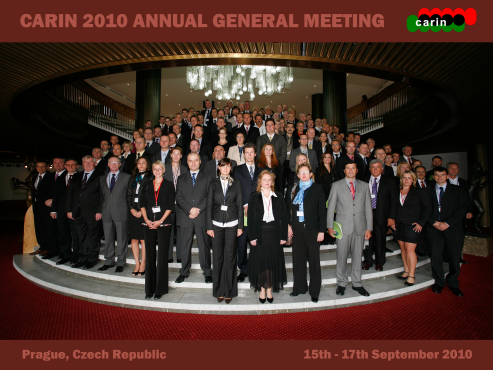
The main topic of the conference was alternative means of searching and freezing of assets prior to the service of a request for mutual legal assistance. Also the possibilities of FAUs regarding to postponement of a client’s money transfer order were discussed, a well as the possibilities of searching for assets through the Schengen Information System and rights of aggrieved persons for damages in criminal proceedings. The conference has adopted recommendations of the participants for increasing the efficiency of cooperation, which the Czech Republic presented to the European Commission, the General Secretariat of the EU Council, Europol, Eurojust and the Egmond network.
Currently, the CARIN network has 54 registered members, 28 of which are EU member states and 9 international organizations.
GRECO
Group of States against Corruption (GRECO) strives to improve the capacity of its members to fight corruption by monitoring their compliance with Council of Europe anti-corruption standards through a dynamic process of mutual evaluation and peer pressure.
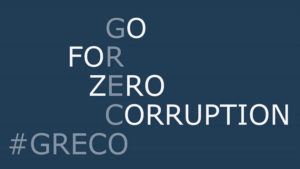
Group of States against Corruption (GRECO) is the most open from the existing mechanisms je mechanisms of monitoring the fight against corruption at the European level and all EU Member States are its members. GRECO was founded by the Council of Europe in 1999 with the aim to “improve the capacity of its members to fight corruption by monitoring their compliance with Council of Europe anti-corruption standards through a dynamic process of mutual evaluation and peer pressure“. As of today, GRECO has 50 members.
GRECO activities follow its own Bylaws and Rules of Procedure. Each member appoints two representatives equipped with voting rights for the plenary meeting. The members also provide GRECO with a list of experts suitable for conducting the evaluations.
Evaluation of GRECO members take place in rounds and are governed by standards set in 20 guiding principles of fight against corruption stipulated in the Council of Europe Civil Law Convention on Corruption and the Criminal Law Convention on Corruption with its Additional Protocol.
The legal framework governing the functioning of the GRECO group includes two possibilities of joining the activities of the group – these are the observer status and membership, which can be either full or with limited voting rights. The Czech Republic is a GRECO member since 2002 and is represented by two delegates, one from the Ministry of Justice and one from the Ministry of the Interior.
Moneyval
The Committee of Experts on the Evaluation of Anti-Money Laundering Measures and the Financing of Terrorism (MONEYVAL) is a permanent monitoring body of the Council of Europe entrusted with the task of assessing compliance with the principal international standards to counter money laundering and the financing of terrorism and the effectiveness of their implementation in individual Member States..
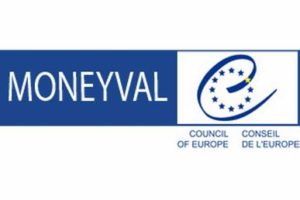
Committee of Experts on the Evaluation of Anti-Money Laundering Measures and the Financing of Terrorism (MONEYVAL) was established in 1997 and its functioning was regulated by the general provisions of Resolution Res(2005)47 on committees and subordinate bodies, their terms of reference and working methods. In 2011 the Committee adopted a new statute which elevated MONEYVAL to an independent monitoring mechanism within the Council of Europe answerable directly to the Committee of Ministers.
The Committee elects its chairman and vice chairman for a period of two years, as well as tree other persons, who together form the Bureau. The Bureau prepares the work of the Committee. MONEYVAL consists of legal experts from the Ministries of Justice, the judiciary, experts responsible for supervision over financial institutions etc. It currently has 30 members, whereas each member is entitled to appoint up to three delegates. The role of observers within MONEYVAL is occupied among others by representatives of the World Bank, the International Monetary Fund, the United Nations Office on Drugs and Crime, Interpol and European Commission.
MONEYVAL bases its activities on 40 recommendations and 9 special recommendations of the Financial Action Task Force on Money Laundering (FATF).
MONEYVAL objectives:
- to secure that its members implemented systems of effective fight against money laundering and terrorist financing and to ensure compliance with the relevant international standards in this area,
- to conduct studies on the typology of money laundering and methods of terrorism financing and its trends and techniques.
